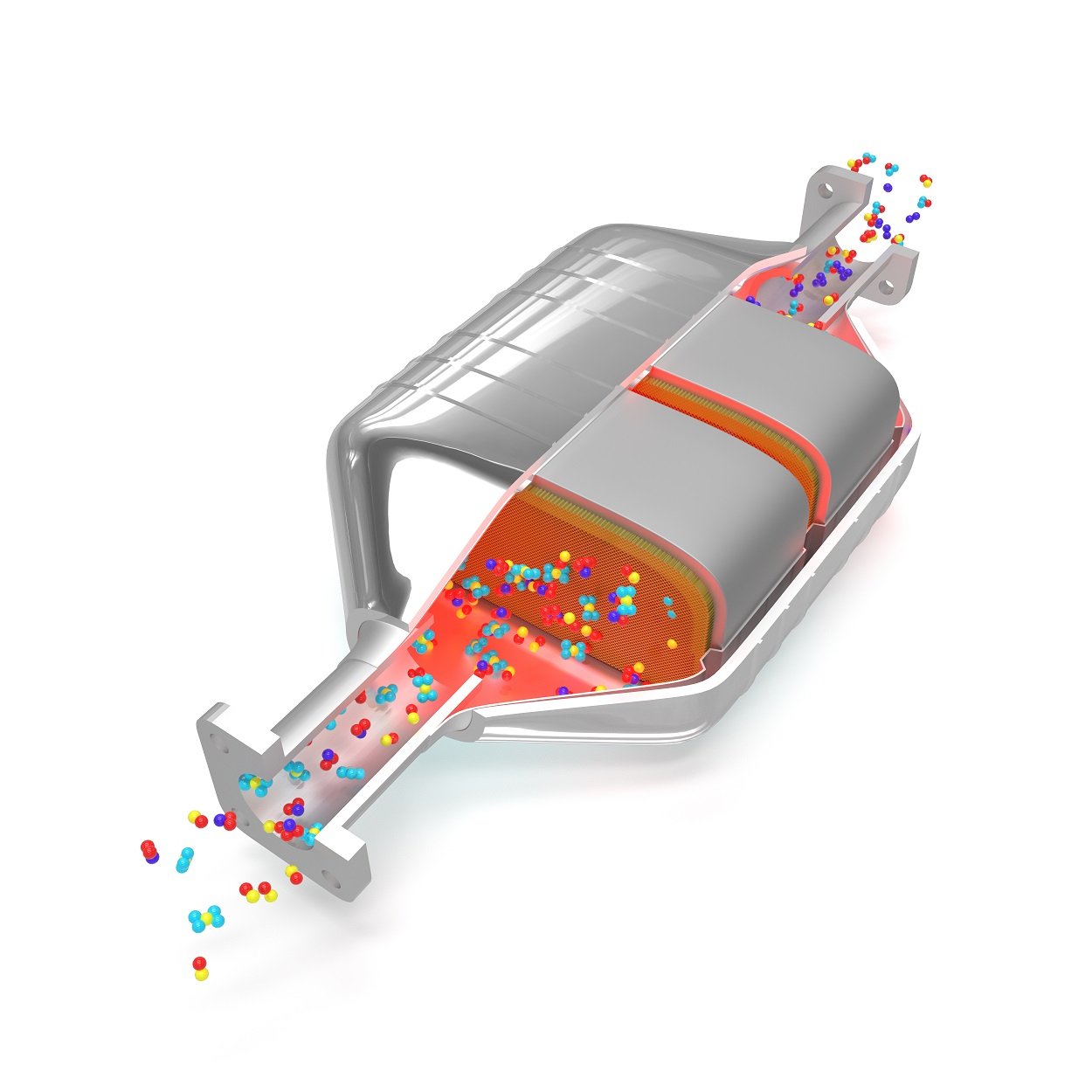Catalytic Converter Theft in Massachusetts: How to Protect Your Vehicles
Right now there’s a part of your car that may be worth more than your wedding ring. It’s your catalytic converter. And unfortunately, thieves have their eye on it.

Converter theft is a global problem, but lately it’s occurring in our own backyard, all throughout Massachusetts. Recent reports cite a rash of converter thefts in Cambridge, Medford, Waltham, and Springfield. Here at C&S, we can attest to the problem firsthand, having helped several MA business insurance clients who are dealing with converter claims in the southeastern part of the state.
Why are thieves stealing catalytic converters in Massachusetts? (And, indeed, worldwide?)
Catalytic converters contain precious metals, including palladium and rhodium, which are part of the platinum-group metal (PGM) family. The value of these metals has increased significantly in recent years. In fact, an ounce of palladium is now worth more than an ounce of gold. Rhodium, meanwhile, is currently worth six times the price of gold, more than $10,000 per ounce! For thieves, this means a catalytic converter might be a better score than the average wedding band or gold watch.
Why do thieves want catalytic converters?
Many scrapyards and black-market buyers have an open call out for catalytic converters, which they turn around and sell to metal recyclers. Ten years ago, a thief could earn between $20 and $200 per stolen converter, according to Edmunds. Today, thanks to the spike in the value of these metals, that range is more like $300 to $850, for just a few minutes of work.
Which vehicles are more likely to be targeted for converter theft?
Thieves know that certain car models contain more precious metals in their converters. Trucks, vans, and older foreign model vehicles, for example, are common targets. Vehicles with OEM cats, versus aftermarket cats, also have more PGMs. (Smaller, newer, lighter cars tend to have fewer PGMs.)
Hybrid and electric vehicles are also at greater risk, because they use up less of the metals (and therefore have more left over) when the car is running on electrical power. The Toyota Prius, in particular, is a prime target.
Because worming underneath a vehicle to saw off a converter is risky business, trucks, vans, and SUVs that sit higher off the ground may also be more attractive, accessible targets.
How can you prevent a thief from stealing your catalytic converter?
Police recommend parking vehicles in a garage, a fenced-in area, or a well-lit place whenever possible. Some vehicle alarm systems can be triggered by vibrations; these may be worth exploring.
If you own a Toyota Prius, you can buy a specially-designed guard. Some clever vehicle owners have resorted to welding the cat onto their frame. Others remove the air from their tires (to reduce crawl space). Of course, these solutions require time and effort most of us can’t afford to spend.
For business owners that rely on a fleet of trucks, adding surveillance video to your parking lot is probably worth the cost. Some security systems have features that will alert you to motion on your premises.
Finally, if you employ a group of trusted team members, who can park vehicles at their residences overnight, that might help offset a mass theft event that takes out your entire fleet. (Just remember to alert your insurance agent if employees are newly using company vehicles after hours. Your commercial auto policy would need an update on the garaging locations.)
Can you file an insurance claim for a stolen catalytic converter?
Yes, as long as you have comprehensive physical damage coverage (something we always recommend) on your vehicle(s). A stolen catalytic converter would be considered a partial theft claim, covered by your commercial auto or personal auto policy, subject to your deductible.
According to AutoZone, it costs roughly $950 to $2,500 to replace a catalytic converter (depending on the make and model of your vehicle). So even with a $500 deductible, maintaining comprehensive coverage to address this risk is worth it.
Will a catalytic converter theft claim affect my insurance rate?
One claim probably wouldn’t increase your premium very much. But business owners should keep in mind: when it comes to auto policies, deductibles are applied per covered vehicle. So if a large fleet of covered vehicles was damaged due to catalytic converter theft, the amount paid out of pocket for deductibles ($500 or $1,000 generally) would quickly add up. Each vehicle damaged by this kind of theft would also be a separate claim on the auto policy. You can be certain, if several of these claims occur, the auto insurance premium would significantly increase over the next several years.
Bottom line: best to be safe and keep fleets locked behind fences overnight, maintain security cameras, and take any preventative measure to mitigate this kind of loss.
For more information on commercial auto insurance or MA car insurance, contact our team of experts: 508.339.2951.
